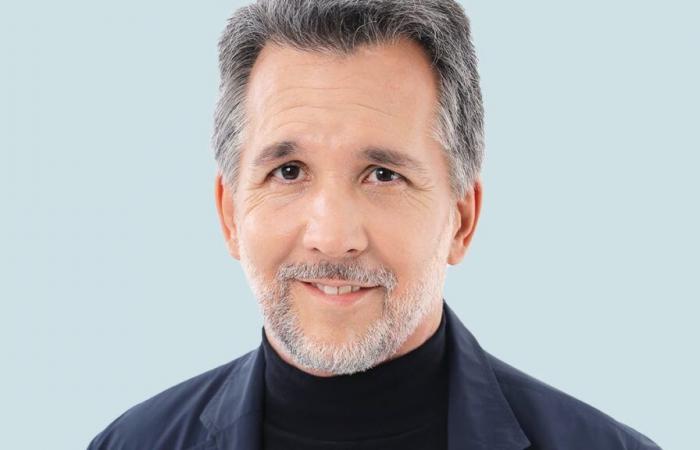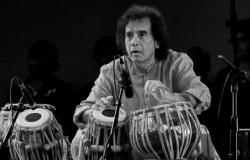While he dominated the charts in another life, Francis Martin became Kaya, a self-taught teacher in dream interpretation. Large universities, especially in Asia, invite him to give lectures, and mental health professionals are increasingly listening to his research, compiled in an impressive work, the two volumes of which are close to 2000 pages. To talk about it, we joined him in Singapore.
We can now say that his books, distributed in 43 countries, are a reference in the field. “Today I travel around the world teaching dream intelligence and understanding symbolic language. Dreams allow us to know ourselves better, to resolve affected memories and even mental health problems. You can really undertake unique personal development through them,” he explains.
Leave it all behind
In the early 1980s, at the age of 10, his talent was revealed to the general public in the rock opera Starmania, in which he played the extra-terrestrial. In 1990, while his solo career was propelled by successes such as Elle ne C plus, When we give ourselves and Rock It, he was nominated for the Félix for pop-rock album of the year, before being nominated for a Juno for Most Promising Male Artist of 1991. At 24, he was on the verge of conquering the international market when he realized he was on the wrong track. Something bigger was on the horizon. But what?
He didn’t know it himself! “I had a contract with Sony Music which took me to the top of the world with the same team as Celine Dion. Then I started to feel the heaviness of life. I no longer knew who I was. I had no more energy. I would wake up at night, sweating, after having horrible nightmares. I was both unphased and fascinated by what was happening to me. I felt an existential quest rising within me, but I had to find answers to my own questions,” explains the artist.
Crossing the desert
After abandoning success, wealth and fame, he resurfaced in 1996 by publishing a spiritual book entitled Balance. He changes his name to Kaya and even adopts a new look, sporting entirely white clothes and long hair making him look like Jesus. Everyone wonders what is happening to him. All the media and humorous forums talk about him.
“I admit that at the beginning, I was a little extreme. (laughs) I am aware that this turning point scared many people. It wasn’t easy to understand. When we begin a spiritual journey, it is generally because we are not very comfortable in our own skin. I then experienced several years of solitude. I no longer had any friends, I had become a bit like the village fool. It led me into dangerous darkness, towards depression. I went so far that I could have gotten lost. Spirituality, like fortune, can lean people toward the dark or the light. Since then, my life has been entirely dedicated to helping people not to go to extremes.”
A lifetime’s work
For 25 years, to feed his encyclopedic dictionary of dreams, The Source Code, he noted, analyzed, decoded and interpreted their symbols with the help of psychologists, doctors and therapists from several countries. There is a detailed explanation of each of the topics, which are listed in alphabetical order.
He thus continues the mission of his organization, the UCM Teaching and Research Center (Univers/Cité Mikaël), founded in 2001. “People from all fields are interested in dreams: psychologists, psychiatrists, doctors and people working in the field of mental health. Our center, based in Quebec, is a non-profit organization that has taken on an international dimension. We teach, among other things, dream interpretation, meditation and spirituality. In Asia, I regularly do media interviews. They are very open about this subject. People recognize me more often there than here. (laughs) Especially since the pandemic, people are trying to understand the meaning of their dreams. By decoding them, we can better understand ourselves on an emotional level. By cleaning our memories, we find inner peace. The more we study our dreams, the more spiritual we become. It can even lead us to have premonitory dreams, which are very powerful development tools. Dream interpretation is, in my opinion, the spirituality of the future.”
Francis versus Rich
Far from hiding what he once was, Francis Martin takes stock of the place he reserves for his alter ego, Kaya, and his life far from the star system. “Kaya is just my pen name. We must not deny any chapter of our life, this is what leads us to evolve. I write, teach, compose meditation music and give lectures all over the world. At the moment, thanks to my foundation, we are developing an application, ChatDreams, a sort of ChatGPT which will soon make it possible to decode all dreams.
Now aged 56, he has shared his life for almost 30 years with his beautiful and tender Christiane Muller, 71 years old. The latter changed the course of his existence. “If we listen to When we give ourselves, which I wrote with Luc Plamondon, we realize how premonitory this song was. Christiane is the love of my life. We give training together and we are very happy. Thanks to yoga, which she practices every day, she is probably fitter than me. (laughs)” To top it all off, the ex-song idol is a grandfather four times over: his partner’s son, who lives in Holland, has a boy and a girl, while his only daughter, Kasara, raises his two daughters in the house next to his, in Quebec. “Azya, six, and Keisana, four, are a source of inspiration and allow me to learn more about life,” he says with a broad smile. A few hours after our discussion, Grandpa flew to Vietnam to join Kasara, with whom he will spend the next six weeks delivering a series of conferences.
The Dreams-Signs-Symbols Dictionary: The source codepublished by Univers/Cité Mikaël, is available in bookstores.






